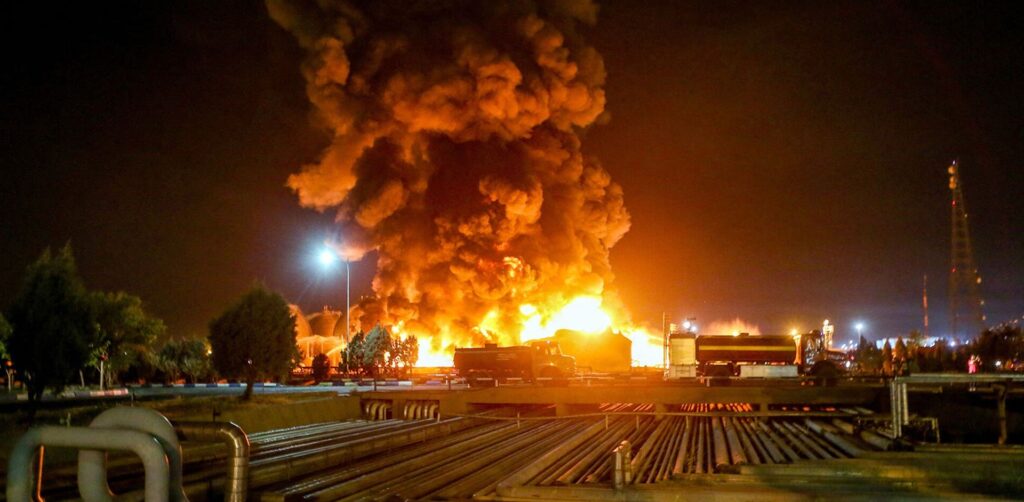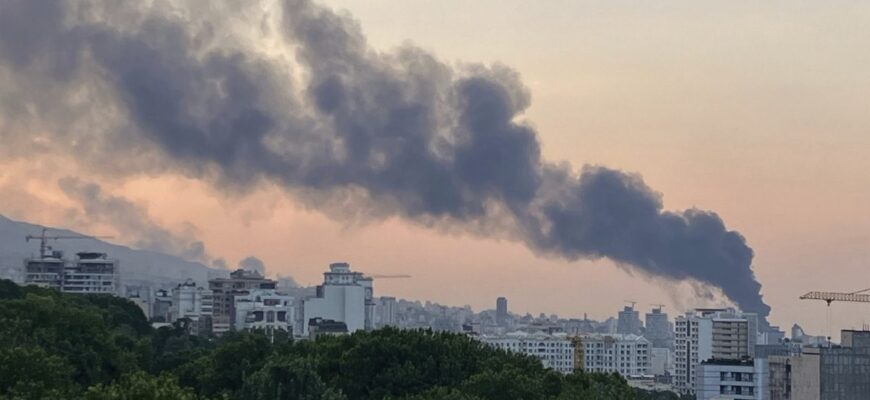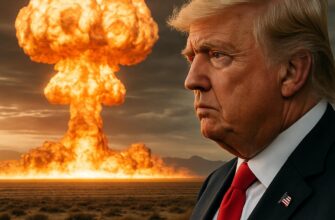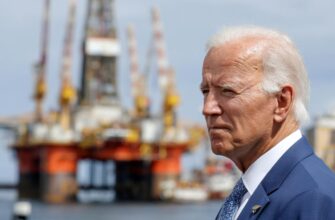The Middle East woke up to a seismic shift on June 22, 2025, when the United States launched airstrikes on three key Iranian nuclear sites—Fordow, Natanz, and Isfahan. This bold move by President Donald Trump marked a direct entry into the ongoing Israel-Iran conflict, which escalated after Israel’s initial strikes on June 13. The decision has sent shockwaves across the globe, with reactions ranging from cautious support to outright condemnation. Journalists at TheMors have tracked the latest developments, gathering insights from across the Arab world and beyond to help you understand what’s happening and what it means. Whether you’re worried about regional stability or curious about global implications, this article breaks it down for you.
What Triggered the U.S. Strikes?
The conflict’s roots trace back to June 13, when Israel launched a surprise attack on Iranian military and nuclear targets, killing several top officials and scientists. This was retaliation for Iran’s earlier missile strikes on Israel. Tensions had been simmering for weeks, with both sides exchanging threats. Israel aimed to cripple Iran’s nuclear program, which it claims is nearing weapon capability, though Iran insists its efforts are peaceful. U.S. intelligence reportedly confirmed Iran’s continued uranium enrichment, prompting Trump to act despite his earlier campaign promises to avoid foreign wars.
The strikes involved B-2 bombers dropping massive bunker-busting bombs, targeting facilities buried deep underground. Trump announced the operation as a success, claiming the sites were “obliterated,” but Iranian officials say the damage was limited and that they had evacuated personnel beforehand. This discrepancy raises questions about the strikes’ true impact. For now, the world is left wondering: was this a decisive blow or a risky escalation? The answer depends on how Iran and its allies respond.
Reactions from Arab Countries: A Mix of Concern and Caution
Arab nations are walking a tightrope, balancing their alliances with the U.S. and their relations with Iran. Saudi Arabia, a key U.S. ally, expressed “deep concern” and called for restraint, stopping short of condemning the strikes. The kingdom fears that escalation could disrupt the region, especially the Strait of Hormuz, a vital oil route. Qatar, hosting the largest U.S. military base in the Middle East, also urged de-escalation, warning of “catastrophic consequences” for the region.
Oman, known for mediating between the U.S. and Iran, outright condemned the attacks, emphasizing the need for diplomacy. Iraq, sharing a border with Iran, echoed this sentiment, labeling the strikes a threat to regional peace. Meanwhile, Yemen’s Houthi rebels, backed by Iran, vowed retaliation, signaling potential attacks on U.S. or Israeli targets. Lebanon’s President Joseph Aoun warned of a broader conflict, reflecting fears tied to Iran’s influence via Hezbollah.

Some countries, like the United Arab Emirates, have stayed quiet, likely due to their delicate ties with both Iran and the U.S. This silence suggests a strategy to avoid picking sides. Across the Arab world, the common thread is a desire to avoid war, though the diversity of responses highlights the region’s complex dynamics. People here are bracing for fallout that could affect their daily lives, from trade to security.
Global Responses: Divided Opinions Emerge
The international community is split. Israel’s Prime Minister Benjamin Netanyahu praised the U.S. action as a “historic” move to secure the region, aligning with Trump’s narrative. Allies like Japan and Australia supported the intent to curb Iran’s nuclear ambitions but stressed the need for dialogue. The European Union, through Foreign Policy Chief Kaja Kallas, condemned the violence and called for negotiations, noting Iran’s nuclear threat while advocating restraint.
Russia and China took a harder line. Moscow labeled the strikes “irresponsible” and a breach of international law, while Beijing urged a cease-fire and criticized U.S. aggression. Both see this as a challenge to their influence in the region. The United Nations’ António Guterres warned of “catastrophic consequences,” urging de-escalation, a view shared by the International Atomic Energy Agency (IAEA), which plans an emergency meeting.
India and Turkey pushed for diplomacy, with India’s Narendra Modi urging calm after talks with Iran’s president, and Turkey’s Recep Tayyip Erdoğan warning of regional instability. These varied reactions reflect a global tug-of-war between military action and peace talks, with no consensus in sight.
What Could Happen Next?
The stakes are high, and the outcomes uncertain. Iran has promised retaliation, which could target U.S. bases or Israeli cities. A closure of the Strait of Hormuz by Iran would spike oil prices, hitting economies worldwide. Markets are already jittery, with oil prices climbing since the strikes. Economists suggest preparing for potential inflation if the conflict drags on.
Politically, Trump faces backlash at home. Democrats argue he bypassed Congress, while some Republicans question the move given his anti-war base. In Iran, public anger might pressure the government to act, though its weakened military limits options. Arab states could see increased domestic unrest if they’re seen as too aligned with the U.S.
For ordinary people, the risks are real. In Iran, evacuations and radiation fears have sparked panic. Israelis face ongoing alerts, and Arab communities worry about economic and security impacts. Travelers and businesses are rethinking plans, avoiding the region as tensions rise.
Practical Steps for Staying Informed
If you live near the conflict zone or plan to visit, stay updated via reliable news sources like TheMors. Governments are advising citizens to leave risky areas. Stocking up on essentials—food, water, medicine—can help if things worsen. Businesses should diversify supply chains to mitigate oil price shocks. On a global scale, pressure for diplomacy is growing, but success hinges on all sides stepping back—a tall order given current hostilities.
Looking Ahead: What’s at Stake?
The coming days will be critical. Iran might opt for a measured response, using proxies like the Houthis or Hezbollah, whose capabilities have been hit hard by recent Israeli strikes. The U.S. and Israel are on high alert, ready for any move. Arab countries will likely focus on protecting their interests, possibly strengthening regional alliances.
This conflict could reshape the Middle East. If diplomacy fails, a prolonged war might emerge, with unpredictable effects on global stability. TheMors will keep you posted as events unfold, ensuring you have the facts to navigate this crisis.
Material prepared by journalists at TheMors, your trusted source for breaking news and analysis. Want to dive deeper into global conflicts, economic trends, or safety tips? Visit TheMors – Breaking News for the latest updates that keep you ahead of the curve!
Frequently Asked Questions (FAQ)
What happened on June 22, 2025?
The U.S. struck three Iranian nuclear sites—Fordow, Natanz, and Isfahan—joining Israel’s campaign against Iran’s nuclear program, escalating the conflict.
Why are Arab countries worried?
They fear escalation could disrupt oil routes like the Strait of Hormuz and drag them into a wider war, affecting their economies and security.
How has the world reacted?
Responses range from Israel’s support and U.S. allies’ cautious backing to Russia, China, and the UN’s calls for de-escalation.
Could this affect oil prices?
Yes, if Iran blocks the Strait of Hormuz, oil prices could soar, impacting global markets and daily costs.
What should I do if tensions rise?
Stay informed, prepare emergency supplies, and avoid travel to affected areas if possible.









